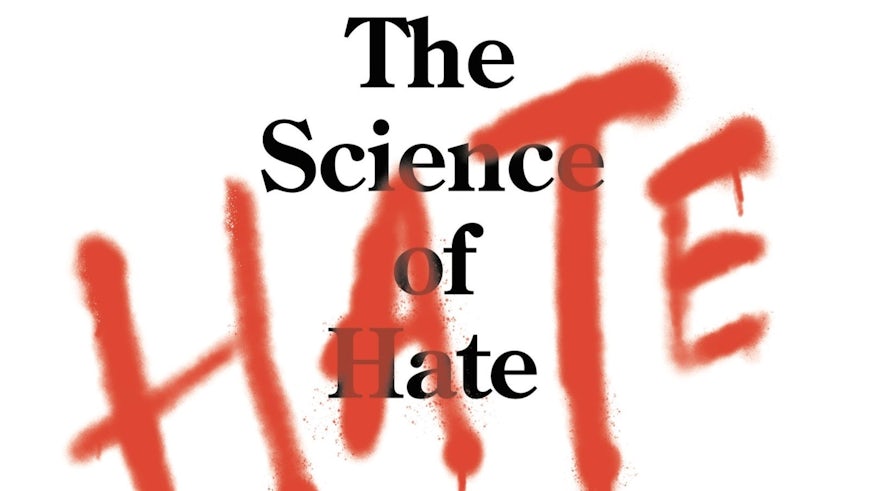COVID-19 political commentary linked to online hate crime
29 March 2021

A Cardiff University professor has uncovered a drastic increase in online anti-Asian hate crime triggered by a tweet sent by former President Donald Trump that included the phrase ‘Chinese virus’ to describe COVID-19.
At the beginning of the pandemic, President Donald Trump used the phrase in a tweet which he then went on to defend in a White House press briefing days later.
While conducting research for his new book, The Science of Hate, Professor Matthew Williams, from the School of Social Sciences, set out to examine if this divisive rhetoric had an impact on the use of anti-Asian hate speech on Twitter.
“My hunch was based on previous research that showed offline events, such as terror attacks and political votes, triggered online hate speech in the immediate aftermath,” Professor Williams said.
Researchers at HateLab, of which Williams is Director, collected around 41 million COVID-19 related tweets between 12th March and 1st April 2020. Using tools developed within the lab to identify online hate speech, the vast dataset was reduced to around 13,000 tweets that showed the hallmarks of anti-Asian hate.
Professor Williams found that in the 48 hours after Donald Trump first used the divisive phrase, the number of anti-Asian hate tweets increased by 656%.
Many of the tweets sent after Donald Trump’s comment were deeply hateful and disturbing, with some people expressing frustration over cancelled plans, like birthday parties, and postponed sporting events, using hashtags containing racial slurs and dehumanising language.
Professor Williams discovered that some of the extremely serious, and possibly criminal, tweets called for extreme violence against the Chinese people.
The majority of hateful tweets came from accounts linked with the US, while at least 317 emanated from within the UK.
Many of the more extreme tweets were removed within 24-48 hours either by Twitter or the original poster, possibly fuelled by feelings of regret.
Research at Cardiff University’s HateLab has previously found a link between online anti-black and anti-Muslim hate and hate occurring on the streets.
The Science of Hate documents how anti-Asian hate on the streets in the first weeks of the pandemic increased significantly, in line with online hate.
In just six weeks of the pandemic over 1,700 hate incidents targeting Asian Americans across forty-five states were recorded by San Francisco State University. Most victims had been verbally harassed on the street, with others suffering physical assault and being attacked online.
In the same period police in the UK recorded a 21 per cent increase in hate crimes targeting south and east Asians. Similar rises have been recorded across Europe, Australasia, Asia, Africa and the Americas.
“Recent reports on both sides of the Atlantic indicate that anti-Asian hate crimes are at an all-time high, with many victims indicating the pandemic and its weaponization by political figures and the far-right is to blame,” Professor Williams concluded.
“Becoming a hate crime victim 20 years ago saw me embark on a journey to find out why. I wrote The Science of Hate to share what I discovered. In the middle of conducting research for my book, the pandemic hit and the landscape of online and offline hate changed dramatically.
“COVID-19 created a new sense of threat that has been misattributed to certain identities by politicians and members of the far-right. As well as Asian people, we have also seen the targeting of Jews, Muslims and LGBT+ people during the pandemic, largely fuelled by divisive disinformation.
“The Science of Hate brings all this research together with a new theory for understating why hate crime and speech continues to rise across the globe.”
In the late 90s Professor Williams experienced homophobic hate crime both on the streets of London, and online while in a chatroom occupied by American internet users. This sent him on a two decades long investigation to unearth the motivations of those that attack people because of who they are.
The Science of Hate: How prejudice becomes hate and what we can do to stop it is published by Faber & Faber on 25th March 2021 (£14.99 trade paperback)


